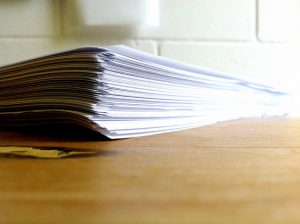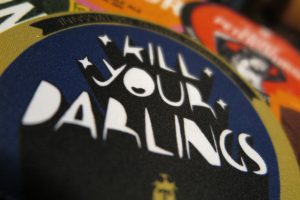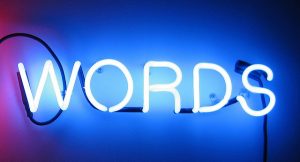Humor
Warning: Hacks for Hacks tips may have harmful side effects on your writing career, and should not be used by minors, adults, writers, poets, scribes, scriveners, journalists, or anybody.
Most writers dream of making it big. But what does “making it” mean, exactly? The answer is different for everyone. There are lots of resources about how writers can make money and improve their craft, but today I want to focus on every writer’s purest motivation: to gain the validation, attention, and admiration of important and attractive people. That’s right, Famous Author Bill Ferris is talking about your level of famousness, which is a healthy and totally controllable thing for you to fixate on.
[Note that I’m differentiating between fame and success here. While a small handful of folks like Stephen King and J.K. Rowling have both, many writers have one without the other. Financial success is outside the scope of this column, but to find out more information on how to get rich as a writer, just Google “writing” and click on literally any search result.]
Writing is a never-ending and non-lucrative job, and if we can’t get paid in money, then we should expect to sign a few books for readers, to get recognized when going through the Drive Thru, or at the very least get some “likes” on social media (which is the true coin of the realm in the influencer economy or whatever).
To find your ideal level of fame, we need to identify what type of writer you are.
Type Zero: Fame? What’s That?
Motivation: You write what you write, and people can like it or not. You’re just doing this for you.
Ideal fame level: Your boss knows you write during your lunch breaks, but doesn’t take that as an indication that you’re slacking off on the job.
How you’ll know you’ve achieved it: You’re either a wild success or unpublished, and in either case, you’re already at your ideal level of famousness. So take your emotional maturity and well-adjusted priorities elsewhere, because the rest of us divas are trying to make a breakthrough here, okay?
Type 1: The Bestseller
Motivation: You want to get booked on every morning show, and go on months-long publicity tours so you can get laid in every time zone. You have an insatiable hunger for praise and validation, for someone, anyone to notice me. Er, I mean you.
Ideal fame level: You can’t leave the house without someone approaching, photographing, or cursing at you.
How you’ll know you’ve achieved it: 1. You’re a guest on a book podcast, and the host has actually read your book. 2. The subject(s) of your infamous tell-all book will no longer speak to you.
Read MoreWarning: Hacks for Hacks tips may have harmful side effects on your writing career, and should not be used by minors, adults, writers, poets, scribes, scriveners, journalists, or anybody.
You love writing. It’s your passion. Why, the only thing more fun that writing is telling people you’re a writer! But lately you feel like a fraud saying that. Not because of impostor syndrome, but because the thought of spending another few hours working on your book makes you want to set your house on fire. And while arson can erase a great many writing sins, that’s a subject for a future column. Today, we’re only dealing with metaphorical fires, by which I mean burnout.
Burnout is sometimes mistaken for writer’s block, but they’re quite different. Writer’s block is like when you’re hungry and you look in your brain’s Idea Fridge and find nothing but some leftover Hamburger Helper. Burnout, on the other hand, is when you open and close your well-stocked fridge for ten minutes knowing you need to eat but can’t muster the energy to make anything but cold cereal (I am once again speaking metaphorically, but burnout often leads eating cereal for dinner literally as well).
Burnout happens to all of us, myself included. For instance, do you know how much torture it was to write this very column? (Note to my editors: I am kidding! Ha ha!) So whether you need it now or later, here are five ways to deal with writer burnout.
Read. Recharge your creativity by reading the great works of others. Replace your disdain of the creative process with the despair that you’ll never be as good as your heroes.
Clear your desk. Get rid of the clutter, trinkets, pens, papers, computer, your big monitor. Move the desk outside to the curb. Wait for it to get stolen or hauled away by garbagemen. When you feel the itch to buy a way-too-fancy writing desk, that’s when you’ll know you’re ready to pick up the pen again.
Read MorePlease welcome bestselling author Randy Susan Meyers to Writer Unboxed today! Randy’s latest novel, WAISTED, tackles the hot and important topic of body image. More about Randy from her bio.
Randy Susan Meyers’ novels are informed by over twenty years working with criminal offenders and families impacted by emotional and physical violence. With Waisted she tackles an issue both personal and political: body image.
Reviewing Waisted, Booklist wrote “Meyers exquisitely explores body image, family, and marriage in this surprisingly deep novel. Though she starts with a fictionalized version of the TV show The Biggest Loser, she dips into major issues of race, culture, obsession, and sisterhood. Taking on the timely topic of how a woman is perceived in today’s society, she twists it into how far women will go to be what society deems right, and at what cost—a marriage, a family obligation, a personal goal? A compelling story that will leave readers giving their scale the side eye.”
Waisted has been chosen as a Top 2019 Summer read by Parade Magazine, Pop Sugar, BookBub, Women.com, Get Literary, and Brit.Com. Kirkus Review wrote, “Meyers spins a compelling tale, raising critical questions about familial, social, and cultural messages about body image . . .” and Library Journal said “Meyers delivers a timely examination of body image, family, friendship, and what it means to be a woman in modern society. It will appeal to anyone who has ever dreaded stepping on a scale; even those who haven’t will learn from it. Culturally inclusive and societally on point, this is a must-read.”
Meyers is a Brooklyn-Boston mix who believes happiness requires family, friends, books, and an occasional NY bagel. She lives in Boston with her husband where she teaches writing seminars at Boston’s Grub Street Writers’ Center.
Randy’s post offers some words of wisdom–and humor–about something all published authors have to grapple with eventually: bad reviews. Enjoy!
Soothing Words for Bad Reviews
It was the best of times; it was the worst of times.
I’m talking about launch time, of course. By the time this essay is published, my newest novel, Waisted, will be out in the world. As will the reviews. From the trades, magazines (perhaps,) newspapers (maybe,) bloggers, members of Goodreads, library thing, librarians, Amazon, Barnes & Noble, Audible, iTunes customers, and, most likely, my auto mechanic.
This time around I’m especially nerved-up. Waisted is the most polarizing book I’ve written. For every fiercely feminist, urgent, darkly humorous, compelling and wickedly fun, observation, I’m piling up knife-like words that indict me for even attempting to write down the inside thoughts of women reacting to a world that treats fat women as pariahs.
And do I respond, as many have written, with mature acceptance of the varied opinions of the world? Do I try, as many have written, to learn from what they write? Do I sigh and think, well, that’s their opinion?
No, I do not. I react like a slug sprinkled with salt. Honestly, one mean (meaning the reviewer didn’t love it) review can overtake reading fifteen filled with accolades.
Upon reflection of said mean reviews I do not cull the wisdom therein. I think of what my next career will be. Certainly, it will be a hermetic vocation that won’t even make the pages […]
Read MoreWarning: Hacks for Hacks tips may have harmful side effects on your writing career, and should not be used by minors, adults, writers, poets, scribes, scriveners, journalists, or anybody.
Nobody has time to write. I myself didn’t have time to write this column, yet here you are reading it. How’d I do it? What’s my secret? Well, my creative writing professor in college always used to say, “If something is important, you figure out a way to make it happen.” And since getting praise and validation from countless online strangers is important to me, I made the sacrifices necessary to write an article where you can say nice things about me in the comments section.
But I’m an online advice columnist who’s been doing this for a while. Not everybody starts out knowing the incantations and precise measurements of blood required stop the flow of time for long enough to scratch out a monthly article. I started with a few tips and tricks for finding time to write, which I’ll share with you here.
Carry a notebook everywhere
Something that can fit in your pocket, like a Moleskine or one of those little pads that TV detectives use. The blank page of a new notebook is a vacuum that will suck the words out of you, which is a natural and not-gross way to think about writing. The great thing about carrying a notebook is that it’s a constant reminder to focus on your craft. You used to only feel Writer’s Guilt while you were squandering your free time after the kids went to bed. Now you can feel it all the time!
Use your spare moments
Those few minutes you normally use to check Twitter or drive to work? Those are ideal times to jot down ideas. Every time you check Twitter, exercise your prose muscles by writing at least one tweet first. During your morning commute, open up your phone’s voice-recorder app and craft a tragic narrative as you rehearse all the arguments you’d like to have with your ex if only the moment was right.
Read MoreWarning: Hacks for Hacks tips may have harmful side effects on your writing career, and should not be used by minors, adults, writers, poets, scribes, scriveners, journalists, or anybody.
After three years, five different hairstyles, six pounds of weight loss, seven pounds of weight gain, a new home purchase, lots of marriage counseling, thousands of cups of coffee, and lots of sleepless nights, you’ve finally finished your book. Now it’s time to distill that experience into a single page. That’s right, it’s time to write a synopsis!
The typical synopsis is 2,000 words, though some people want a synopsis that’s only 1,000 words. I’ve seen a few agents and editors request a 500-word synopsis, but you should avoid working with these people because they are clearly sociopaths who enjoy destroying writers’ minds.
Preparation
For practice, start by writing a synopsis of works you already know. You can get your juices flowing by synopsizing other great works of art. For example:
First Paragraph
Start with your protagonist, their central conflict, and the setting. You only have a page or two, so you’ve got to keep it short. “Annie was in a race against time to get from Florida to California in 36 hours, and she can’t take a plane for some reason. She’ll have to navigate America’s scenic highways and byways, which SOME readers can’t be bothered to read about right now, but they’re really something, take my word for it.”
Characters
Remember your rich cast of supporting characters? The folks you now relate to better than your own family? Well, now they’ll know how your flesh-and-blood family feels as you undersell, oversimplify, and completely ignore several of them. You can explain to them later why you had to reduce them to a series of first names, personality quirks, and plot utility. “It’s for work!” you’ll say when they object to being belittled and disregarded. Your characters will tell you they understand. They understand all too well.
Read MoreHappy April Fools’ Day! In honor of the holiday, I’ll be giving highly prescriptive, condescending writing advice that sets arbitrary limits, reinforces inflexible constraints, and just generally crushes your creative spirit. For fools, from a fool.
*throws confetti, the most foolish of celebration tactics*
I get letters from aspiring writers from time to time. Here’s one of them now:
Dear Famous Author Bill Ferris:
I want to be a successful writer, but it takes time and hard work, both of which suck. How do I become a success without having to work for it, and when do I get my participation trophy?
Thanks for being so handsome.
Sincerely,
Writer Person
This real letter, which I absolutely did not make up as a straw-man argument, perfectly illustrates that the only thing keeping you from writing success is you. It’s not that you don’t want to succeed, it’s that you’ve prioritized other things ahead of your writing—cable television, video games, your job, a meaningful social life, your family. None of these things are going to help you achieve the success you crave. What’s really important to you? You’re going to have to make some difficult choices about your life. Here’s what you’ll have to give up to become a successful writer.
Warning: Hacks for Hacks tips may have harmful side effects on your writing career, and should not be used by minors, adults, writers, poets, scribes, scriveners, journalists, or anybody.
You only get one shot to hook an editor or an agent. If you’re going to get them to like your novel, you’ve got to do it in the first 500 pages. It may sound harsh. It may seem unfair. But if you want to make it as a writer, you’ve got to deal with the fact that most publishing professionals will give you maybe 500 pages—or less!—to hook them. If they’re not invested in the characters, if they’re not completely immersed in the plot, if they’re not moved to tears by your imagery within your novel’s first six dozen chapters or so, it’s probably never going to happen. Don’t despair, though! In this month’s column, I’m going to cover all the elements you need to include to make your first 500 pages absolutely un-put-down-able.
Opening Action
The most important thing you can do at the start of your novel is to grab readers’ attention with an exciting opening! I’m not talking car chases—human conflict and emotion can sizzle just as much as a bank robbery if you play your cards right. A solid, action-filled opening should include the main character facing a problem, experiencing early setbacks, meeting friends along the way, getting rejected by their love interest, hitting rock bottom, then rising up to defeat their antagonist and win their beloved’s affection. It’s a lot to do, but if you use your elements of craft and write lean, muscular prose, you should be able to accomplish all of this by the bottom of page 500.
Stakes
Never take readers’ interest for granted. It doesn’t matter if you’ve got a colossal payoff on page 501 if you haven’t earned their attention by page 500. They need a reason to care—what’s at stake in your book? What’s your protagonist’s reward for success? What’s the penalty for failure? Stakes give readers a reason to care what’s happening, and it’s of paramount importance that you communicate those stakes within the first 125,000-odd words of your manuscript.
Read MoreWarning: Hacks for Hacks tips may have harmful side effects on your writing career, and should not be used by minors, adults, writers, poets, scribes, scriveners, journalists, or anybody.
Every critique session since the 1930s has included someone saying the phrase, “Kill Your Darlings,” and it must continue ever after, like those chain letters you got back in middle school. It’s not enough to kill your darlings in your writing, though. You’ve got to slay those darlings 24/7, whether it’s on your keyboard or at your writers group meeting or at your friends’ birthday party. You’ve got to flense every ounce of fat from your life if you want to make a career of your writing. I’m going to show you how. You’re going to hate this. That’s fine, it’s no picnic for me either. We’ll both be stronger for this.
Warning: Hacks for Hacks tips may have harmful side effects on your writing career, and should not be used by minors, adults, writers, poets, scribes, scriveners, journalists, or anybody.
Welp, another year over (yay!), a new one just begun (ARGH!). It’s that time of year when all of our apps send us emails about how many books we read, what music we listened to the most, or how much exercise we got. In this online world of ours, it’s important that we quantify what we’ve done so that we can make our passions more closely resemble math homework. And your writing career is no different. Taking stock of what you’ve done this year is like your annual review at work, except without the possibility of your boss giving you a raise at the end of it. For some writers, looking back at the year that was is like admiring a full trophy case (or possibly a bookshelf full of one’s own publications). For the rest of us, the annual review involves dwelling on a dozen short-story misfires, reliving cringeworthy interactions with your favorite author at a convention, or failing to come up with a funny third beat in a comedy triplet.
Lucky for you, there’s hope. Before my divorce, my marriage counselor liked to say that the difference between success and failure is all about how you frame things. I’m passing this good advice along by showing you how to take an honest look at your the past year in your writing career, then spinning that honest look into something that doesn’t look like you’ve just been spinning your wheels for twelve months.
First, tally your publications. Twitter.com and Facebook are two of the most popular websites in the world, so it’s pretty rad that you got your work published there.
Celebrate your successes. For example, you got paid for writing a magazine article? Pat yourself on the back, you’re obviously doing something right! But success isn’t only measured in money. There are many achievements that you can take pride in that don’t necessarily involve you cashing a check. Get an agent for your novel? Hey, not too shabby, buster! Buy a fancy new pen? That’s cause for celebration in my book! Abandon your NaNoWriMo project that was making you miserable? I will personally throw you a parade! The nice thing about being your own boss is that you get to decide what success looks like. Unless you’re relying on your writing to pay the bills, in which case you definitely should measure success with money. I hope you like beans and rice!
Read MoreWarning: Hacks for Hacks tips may have harmful side effects on your writing career, and should not be used by minors, adults, writers, poets, scribes, scriveners, journalists, or anybody.
Most people who start NaNoWriMo never finish their book. They get busy, they run out of steam, life gets in the way. It happens. There’s no shame in that.
You, on the other hand, have been crowing since August about saving all your ideas for November and that this book will blow everyone away. “This is my year, baby!” you said. “I’ve got so many ideas! I’m gonna crank this thing out, edit it in December, get an agent by February, ink a deal by May, and lord it over my friends the rest of the year! Whoo!” Well, all that big talk has led to a plot that’s basically cribbed from Gremlins 2, and what you thought was a fleshed-out protagonist is the same snarky “tough guy” you use in all your stories, but with a different hair color. To finish by November 30, you’d have to write 2700 words per day, which is technically doable, except the very thought of spending one minute more on this bookwreck makes you want to set your desk on fire (possibly while still seated at your desk). If you bail out now, though, you’ll look like a flaky loser (which is totally what people will think because EVERYONE is very concerned with YOUR BOOK in particular).
Don’t worry, I’ve got you covered. Here’s how to pull the ripcord on your NaNoWriMo project and not look like an idiot.
Wrap things up early
By which I mean, just stop writing and then lie about it. “Oh, the book? Yeah, I wrapped that up by Thanksgiving.” People don’t have time to read all the books they’ve paid money for; who’s got time to read something you haven’t had time to edit yet? Oh, that’s right–you promised the second coming of To Kill a Mockingbird, and you may have friends who want to see how it turned out (or, more likely given that you’re the sort of person who reads this column, you have a rival who wants to see you crash, burn, and have a cheap funeral). If you absolutely must present your work to someone, stop writing where you are, then have your character say something self-reflective while looking at a lake. When people don’t get the ending, just say, “It’s kind of an experimental novel.” Then, give them the side-eye and say, “Not everybody’s supposed to get it.”
Announce that your book has grown into a trilogy
“Whoa,” you’re saying, “that sounds like a lot more work.” Well, yeah. But all of that work is in the future. Who cares what happens then? If people start asking how your trilogy is coming along, I’m sure you’ll think of something. It’s the classic writer’s trick of raising the stakes, except involving your own time, reputation, and mental health.
Read Moreimage by Pierre Metivier
The best thing and the worst thing about National Novel Writing Month (NaNoWriMo) is the relentlessness of your daily word count goal. You don’t have to write 1667 words a day, of course, but if you want to get to 50,000 words by the end of the month, you need to hit that average.
Some days that’s tough. Some days it feels well-nigh impossible. So here are 16.67 ways to juice your creative energies and string together some sentences – maybe even a scene – to get you closer to your inevitable NaNo win.
1. Take a bite. Look, your characters have to eat sometime. And what and how we eat can say something about who we are and how we live. Especially in a sci-fi, fantasy or historical fiction manuscript, what your characters eat will help define their world and invite the reader to the table.
2. Sweet dreams. Yes, dreams are absurdly overused in fiction in general as a shortcut to communicating a character’s wants and needs. However! In the deliciously sloppy first-draft world of NaNo, exploring is important. Even if the scene doesn’t make it into a finished manuscript, it might help shake something else loose—for the character or for you.
3. Dressed to the tens. Following on that point, clothes, like food, help set scenes and define worlds. Obviously in a finished book you’re probably not going to lavishly detail every single gown and glove, but if you’re looking at a fresh scene you just wrote, asking yourself what everyone involved is wearing might be a way to add a few sentences. And this month, every sentence counts.
4. Away we go. How are your characters getting from place to place? Don’t be afraid to spend a little time in a car or carriage. If two or more characters are traveling together, maybe a conversation happens on the way. Solo traveler? Maybe your buttoned-up character, in the privacy of her own Prius, likes to crank Nine Inch Nails. You may discover something that comes in handy later. If not, at least you’re keeping those fingers limber.
5. ‘Tis the season. Whether or not you’ve thought about what time of year your story takes place, mentions of weather, holidays, annual events, or other time-stamps can be helpful for your eventual reader… and round out those bare-bones scenes you’re throwing down. You’ll want to know eventually whether your character is yanking on a pair of cut-offs or zipping up her puffy parka. Might as well add that in now and put some words to it.
6. Don’t get to the point. When drafting fast, I often find myself scripting the essential parts of conversations where the action happens and then moving on. But that’s not necessarily how talking happens in the real world. You don’t need to start every phone conversation in your book with “Hello, it’s me.” “Hi. How are you?” In fact, please don’t. But ask whether your characters are actually up for these intense, brisk conversations. Is one of them actively trying notto hear what the other is saying? Might the conversation take a turn in a different direction before it comes back to why it’s there?
7. Same amount of conversation, a little more action. In those same, […]
Read MoreWarning: Hacks for Hacks tips may have harmful side effects on your writing career, and should not be used by minors, adults, writers, poets, scribes, scriveners, journalists, or anybody.
Science fiction Grand Master Joe Haldeman once told me, “If you’re having trouble writing a book, try writing about the book.” By “told me,” I mean he said this out loud in a convention panel discussion that I happened to have wandered into, and by “writing about the book” he meant outlining, probably (I wandered in halfway through). Given that I can get stuck on four to five books at a time, I’m the ideal person to extrapolate on the advice Haldeman might very well have given. So let’s talk about outlines!
What an Outline Is, Isn’t, and Kinda Resembles
Let’s start with defining an outline. For the purposes of this column, an outline is any document external to your book that acts as a guide to the process of completing it. It is not the Roman-numeral-laden inverted staircase you made in your high school English class (unless you find that structure helpful). Literally any format that makes sense to you is fine, whether that’s a one-page narrative description of characters and events, a bulleted list of plot points, or a bar napkin you found in your coat pocket that says, “Like Die Hard but with dragons.” Anything is an outline if you’re okay filling in gaps with explosions.
Some people think of an outline as an instruction manual for writing your book. I like to think of an outline as the literary equivalent of the people in your life who enable your writing career while you take them for granted and give them very little in return.
Know Your Ending
Do you pack the fam into the car for a vacation if you don’t know the destination? In this metaphor, the roadmap is your outline, and your vacation destination of Orlando, Florida, is the ending for your novel, which is in Jacksonville, Florida.
Read More





















